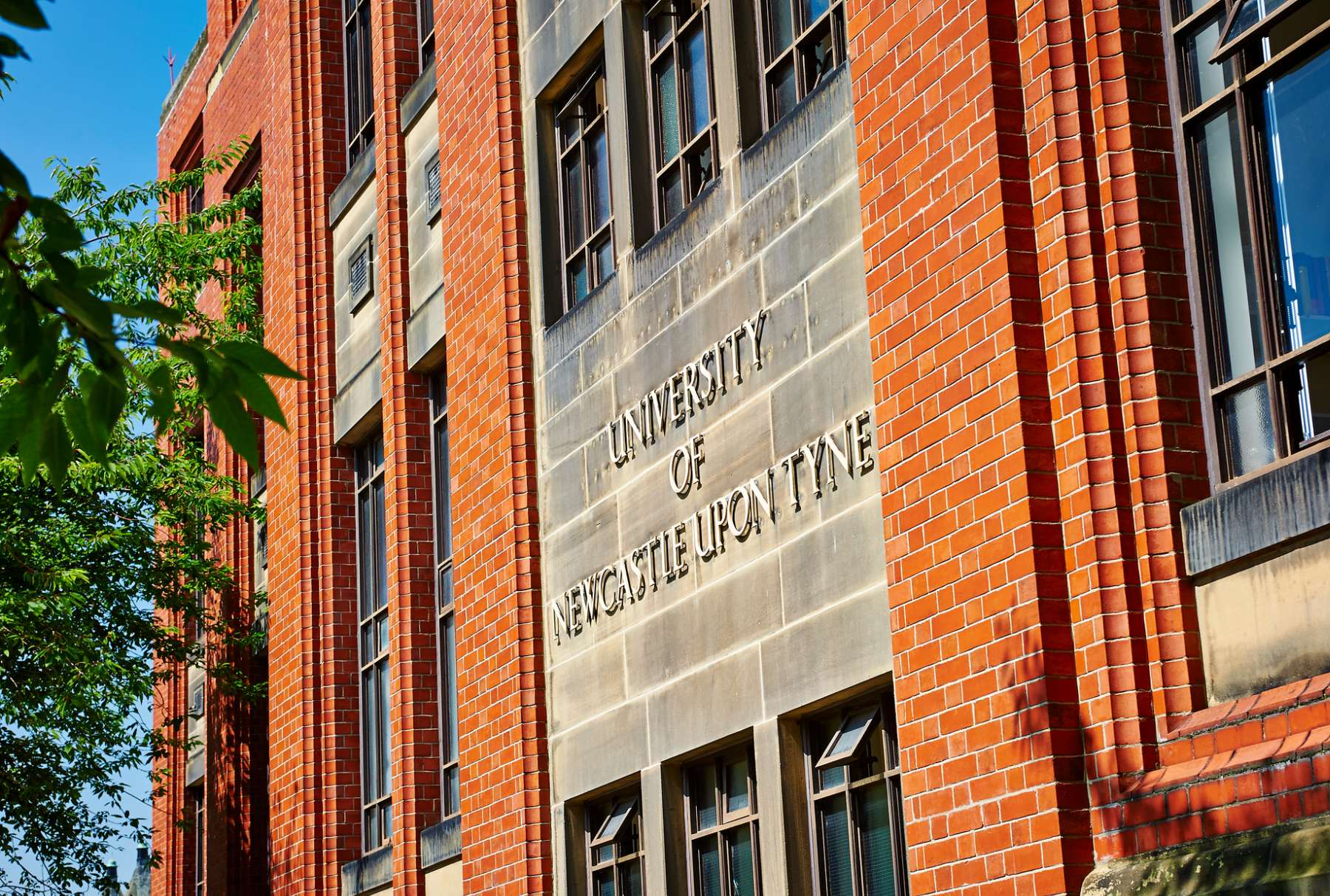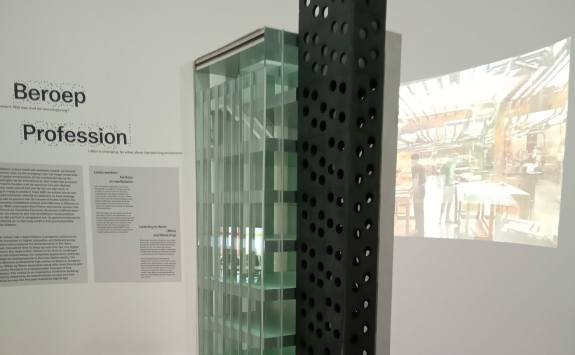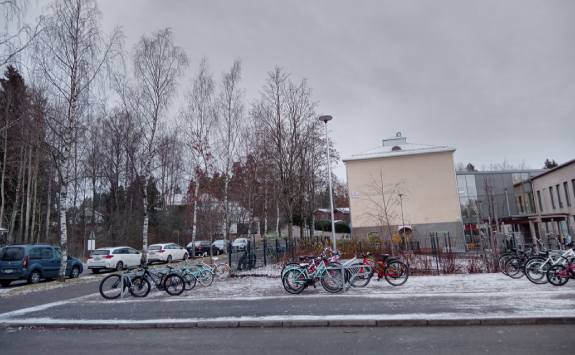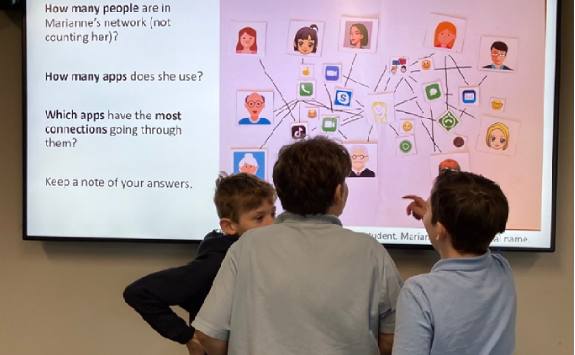Community for Learning and Teaching Newsletter
January 2024
Issue 47
If you are a doctoral researcher based at one of the NINE DTP universities (or know someone who is) and interested in using visual methods, sign up for Visually Mediated Research: Using Visual Methods in the Social Sciences - NINE DTP - a free training event, featuring CfLaT members and work.
A touring European exhibition, Classroom, a teenage view, is closing with a symposium in Hasselt, Belgium that Pam Woolner has been invited to join. Catch the exhibition if you can and find out more.
Karen Laing and Liz Todd recently presented about place-based approaches to tackling poverty to Gleadless Valley Regeneration Project in Sheffield. Conversations included the role of play in regeneration schemes and further collaborative work is planned.
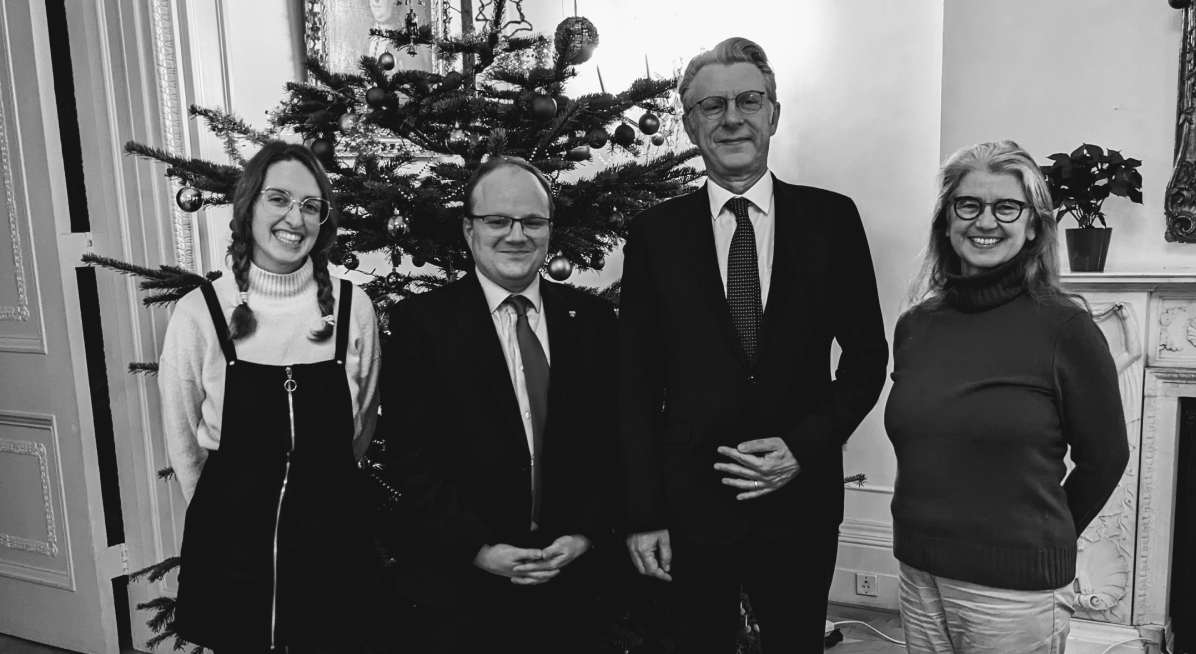
CfLaT at Coram Event
On 29 January, ECLS and Coram Life Education held a joint event: A whole-community approach to children’s wellbeing: helping all children to thrive.
The focus of the event was on the wellbeing of young people, and was aimed to engage with and facilitate discussions between schools, community partners and researchers. It was well-attended by an impressive range of people from within and, particularly, beyond the university.
The work of CfLaT colleagues was well-represented and included lightning talks by Ulrike Thomas on developing methods for evaluating the Coram’s Shakespeare Schools Theatre Festival, Debbie Ralls about her Relational Toolkit, Alison Whelan and Ulrike on Project Based Learning, Jill Clark about the social justice action project and Pam Woolner on pupil voice within the CoReD project.
Action projects for social justice
Children from Bridgewater Primary School, working with Children North East, and young people working with Success4All are taking part in a social action project funded by Newcastle University Social Justice Fund.
Supported by training by Jill Clark and Karen Laing, children in the West End of Newcastle have been researching what social justice means to them and their peers over the last term. The young researchers will be given a budget to create an action plan based on their research and implement a project of their choice to promote social justice. The children at Bridgewater have chosen food poverty as their topic and are currently negotiating with Newcastle food bank to find out what they can do to take action.
We look forward to hearing about what happens!
For more information contact k.j.c.laing@newcastle.ac.uk or jill.clark@newcastle.ac.uk.
The main focus of the visit was the work she has been doing with the two European public banks, the CEB and EIB, investigating and developing ways to involve educators in planning new schools. She visited schools in Espoo and Järvenpää, two municipalities near Helsinki, that have been involved in trialling the ‘Constructing Education’ framework that Pam co-authored with Alison Whelan back in 2021. Finally meeting the head teachers that she has only known through Zoom, and seeing their schools, was very interesting and enjoyable.
There was also a two-day event in Järvenpää, organised by the banks to promote ‘Constructing Education’, and attended by their clients from across Europe and beyond, as well as learning environment researchers from Australia, Sweden and Argentina.
Pam also fitted in a talk at The Aalto University, Helsinki, as the guest of Tiina Mäkelä of the University of Jyväskylä, who is currently collaborating with CfLaT’s old friend Paula Cardellino of Universidad ORT, Uruguay.
Then it was off to Sweden, where Pam met up with Anneli Frelin and Jan Grannäs, partners in the 2019-22 CoReD project. They are now working together to discover more about how teachers are using the more open and flexible school spaces currently being built in Sweden. Finally, in Stockholm, Pam and Anneli were the guests of Skolhusgruppen (the School Buildings Group). Pam gave a talk to introduce the audience of architects and designers to the CoReD resources so they can use them when they work with Swedish school users.
Cold and dark though it undoubtedly was, Pam got warm welcomes in both countries – and the fika in Sweden was excellent!
Widening participation in higher education
Karen Laing, Amina Razak and Liz Todd have been collaborating with professional services staff, strategic leadership teams across the university, and Inclusive Newcastle Knowledge Centre colleagues to develop Newcastle University’s next Access and Participation Plan (APP).
This plan sets out what the university is going to do to address gaps in access to Higher Education for under-represented people as well as ways to address awarding gaps and inequities in educational outcomes. The APP is important because without it, the Office for Students will not allow a university to charge full fees to its students.
Karen, Amina and Liz have developed an overarching theory of change for the Plan and have been helping those responsible for implementation to think through their theories of change for the actions they will take, and what kind of evaluation might be needed to assess ‘what works’ in widening participation to Higher Education.
For further information please contact:
Each school also participated in a Visiting Social Scientist component, involving children being introduced to the idea of investigating human interaction. They learned about purposes for, and approaches to, inquiry in the social sciences, culminating in a workshop at Newcastle University where they had a chance to get hands-on with some authentic data. One of the teachers commented that the visit, in particular, had raised children’s interest in going to university when they are older.
Sue is continuing to connect with Liz and Ulrike as the team progresses the analysis and works towards publication. Emerging themes for further work include the nature of informal learning, the dynamic inter-relation of on- and offline practices and social contexts, and how children are ‘doing school’ in digital spaces. Similarities and differences between findings from the UK project and Sue’s Australian study are also being explored. Interestingly, across both studies the school factor has emerged as significant.
Sue will be back in Newcastle for a short visit in February. Get in touch if you would like to connect: sue.nichols@unisa.edu.au
Research Teas: Spring 2024
CfLaT Research Teas aim to provide an informal opportunity for staff, postgraduate students and other interested parties to get together to discuss current research. They will be held in KGVI.B83.iLabLearn with tea and coffee available from 15:300 and the session running 15:45 to 15:45.
Wednesday 7th Feb 15:30 to 16:45: Climate justice education: student and teacher perceptions, and sharing resources - Dr Catherine Walker, NUAcT Fellow, Geography, Newcastle University
Wednesday 6th March 15:30 to 16:45: Transformation through Co-Creation - Dr Stephanie Holton, Senior Lecturer in Classics, Newcastle University
For further information on CfLaT research teas, if you would like to join a tea via Zoom or if you are interested in discussing some of your own research please contact Lucy.Tiplady@ncl.ac.uk.
Blyth tall ships are innovative in Seville
ICERI 2023 was the 16th annual International Conference of Education, Research and Innovation, held in Seville from 13th-15th November 2023.
CfLaT member Alison Whelan attended the conference, chairing a session on Service Learning and presenting her research with Blyth Tall Ship which explored the impact of engaging in heritage workshops on individual and community wellbeing.
Over 800 delegates from 60 different countries were in Seville, providing a wide range of fascinating talks and workshops on all aspects of education and innovation. Highlights included interactive sessions on Artificial Intelligence (AI) in education with ‘The AI Educator’, Dan Fitzpatrick, and debunking ‘neuromyths to maximise learning’ with US academic Tracey Tokuhama-Espinosa.
Alison comments, “The conference was a valuable experience both as a presenter and chair, and as a delegate, with opportunities to meet educators from all over the world in a beautiful setting.”
Through a combination of small group discussions, Lego building activities and question and answer sessions, we heard of the importance of safe and supportive environments that inspire and motivate children and young people to learn. Two comments from the young people:
I really like school because I know I’m equal to everyone. No-one treats you different. Everyone can like what they want and don’t have to argue.
Everyone needs someone there for them.
The key theme of relationships was heard throughout discussions, including the positive and negative impacts that different practices have. Listening to children, young people and families was identified as key to improving educational experiences for children.
However, it was also recognised that there are issues that need to be addressed on a national level, such as poverty, a relevant curriculum (including learning beyond the classroom and good quality alternative provision) and holistic support for all (particularly pastoral, health and careers). There was frustration that instead of a comprehensive range of measures to support young people back into education, there are perverse barriers such as how the apprenticeship levy is applied and a punitive benefits system that can make re-engagement very difficult. Participants called for joined up and evidence-based education policy making that sits outside of party politics and has wellbeing at its centre.
Last year we were also involved in a systematic review of the Social Determinants of Educational Underachievement in Europe and a Policy Review of Strategies to Tackle Underachievement and Early Schoool Leaving. These outputs are in the final stages of review and will be publicly available on the project website shortly. In 2024, we look forward to engaging with our local schools further through case studies of innovative practice to engage children, young people and families and reduce underachievement.
More information:
